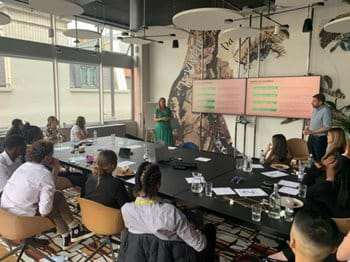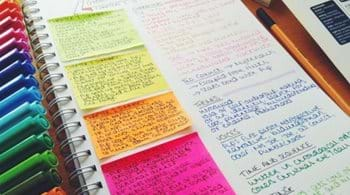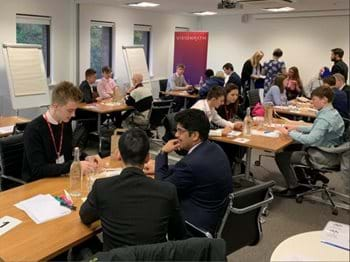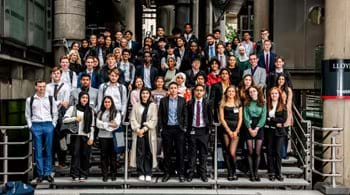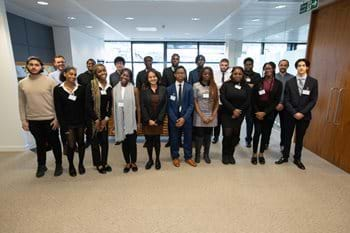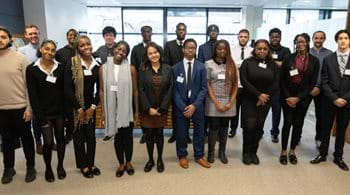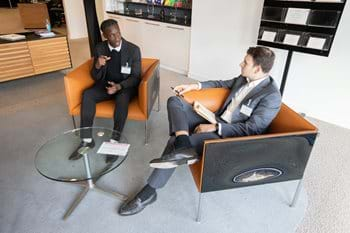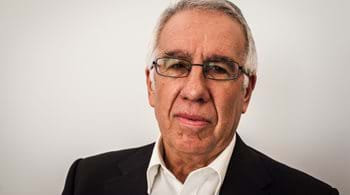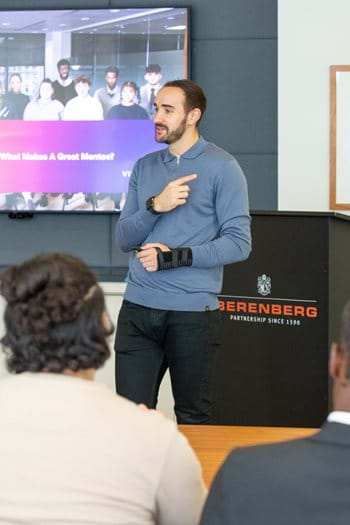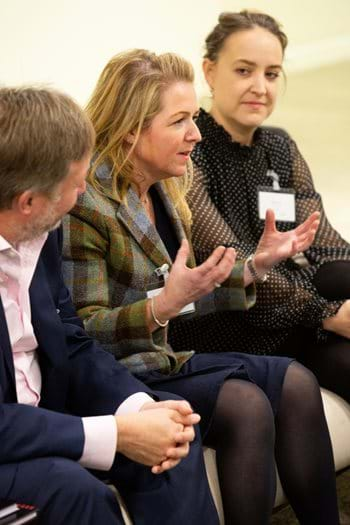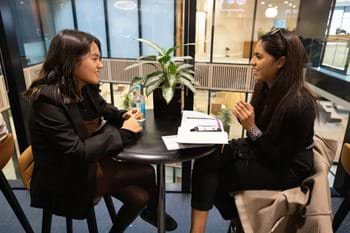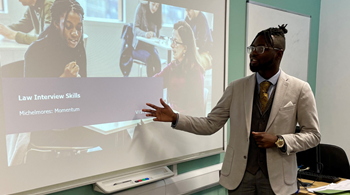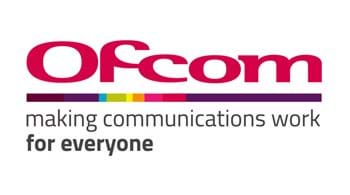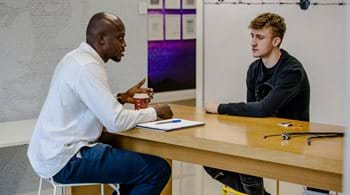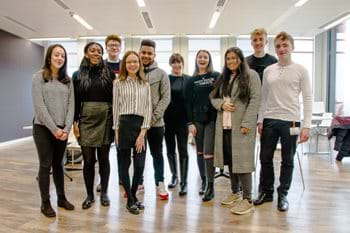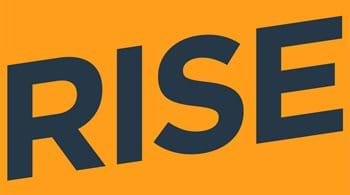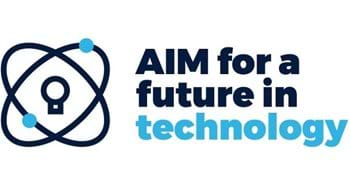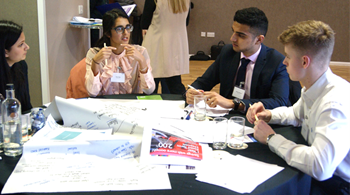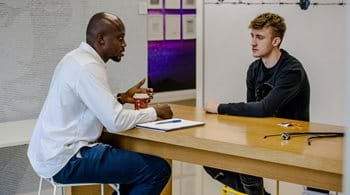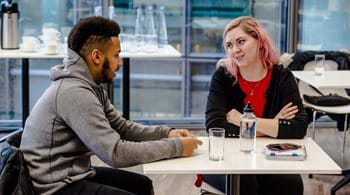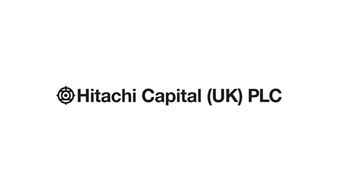Interviews can be daunting, especially when you’ve never had one before. To help you prepare and make the most of the opportunity, we’ve taken a look at some questions you might be asked and how to answer them so that you can make a great impression.
Can you tell me about yourself?
Here is a chance to focus on your characteristics and skills. An employer is looking for positive attributes that would make you right for their workplace, such as being ambitious and friendly. Focusing on the right characteristics will show the company you are motivated and employable. When it comes to your skills, draw upon what you have learned at school or in any part-time work, such as communication and organisation, which could be transferable to a career.
Although your skills and characteristics are important to the employer, they also want to know a bit about you as a person. Tell them about your passions and interests, what you like to do in your spare time. An interview can be stressful so it’s nice to be able to have a chat and let the employer get to know you.
Why do you want to work here?
Be sure to do your homework and research the company, learn what they do and note aspects that you find most interesting. You can share this knowledge in the interview by connecting your skills and characteristics to the brand and explaining how your aims and values relate to theirs.
What are your strengths and weaknesses?
It is quite easy to list your strengths, as you can recognise these when excelling at school, for example teamwork or self-management.
However, because it can sometimes prove difficult, being able to list a weakness is actually a strength! Point out a weakness that you’ve previously identified and are focusing on resolving as managers like to see their employees focus on self-improvement.
Why should we hire you?
This gives you a chance to show off (without boasting) your skills, interests and experiences and how they relate to the job.
Explain how your skills fit with the role so the interviewer can understand how you’d be a better fit for the position than another candidate. It’s also important to draw connections between your interests and the role because people thrive most in doing things they enjoy, so it’s useful for the interviewer to get that insight!
If you’ve had experience in a similar role or company, then it would be worth mentioning so that the interviewer can see you have transferable knowledge. The employer wants to see that you are confident in your abilities and, by making those connections to the role, you’re showing how much you want the job.
Tell me about a challenge you've faced at work, and how you dealt with it.
Employers want to understand if you can handle any situation professionally and responsibly so think ahead and come armed with a couple of examples of difficult scenarios you’ve encountered at work or in school. Reflect on the problem, any options you had to resolve it, the route you took and – crucially – why you chose that approach.
What do you know about our company?
The interviewer wants to see that you researched and took an interest in their company before the interview. However, you should always research a company before applying for their role anyway!
Knowing things like what they do, their aims, theirvalues, their customers and any recent company events helps to build your knowledge and impress the interviewer.
Where do you see yourself in X years’ time?
Especially if you’re young, this question can be hard to answer as you may not know where you see yourself in the future just yet. However, long-term goals can always change over time so answer the question as you see it now even if you aren’t entirely sure on the goals you’ve set.
Talk about the kind of job you’d eventually like to do and the steps that you’ll take to get there. For example, if you are interviewing for an apprenticeship then you know this should take about a year to complete and then you may want a permanent role at the company.
Remember that your goals should be realistic and within the limits of the organisation, so you wouldn’t say you wanted to manage ten people if the company only consists of three. Also, you may want to avoid telling the interviewer you want their job eventually – this may not sit well with some people!
These are just a handful of the many questions you could be asked, so make sure you do plenty of research and practice before the real thing. Interviews are never as bad as you expect, so just prepare, relax and be yourself. You’ve got this!
Click here to see how our programmes can get you future-ready.


